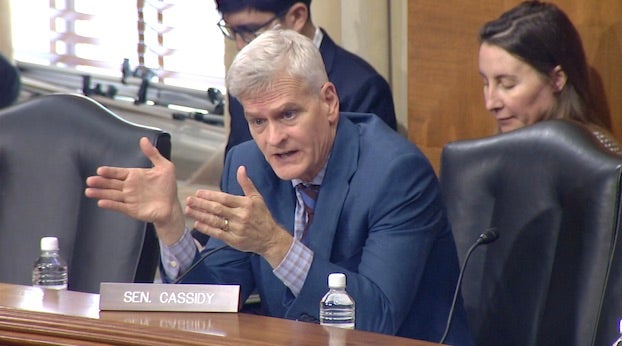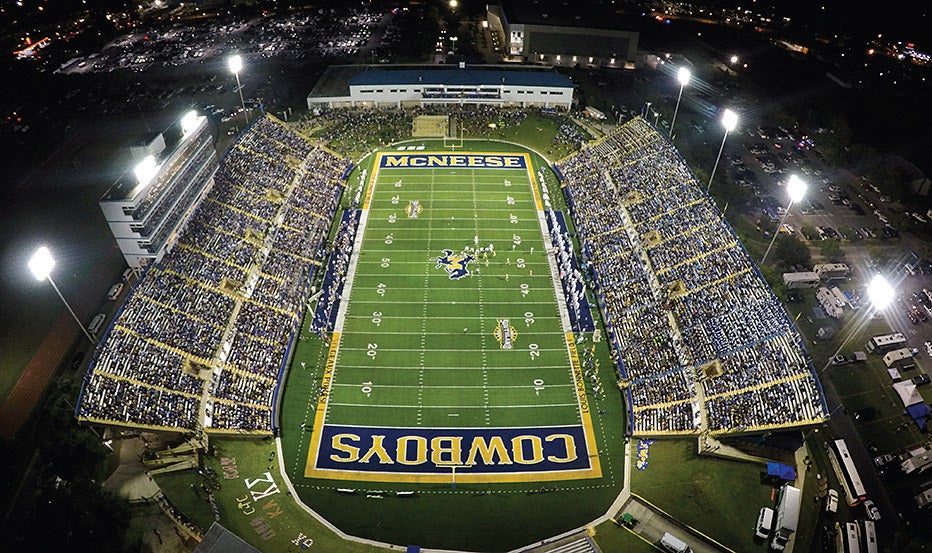Jim Beam column: Why are they leaving state?
Published 6:27 am Thursday, September 8, 2022

- LPB's "Louisiana Spotlight" gave viewers a detailed breakdown on why people leave Louisiana and what can be done about it.lpb.org
“Leaving Louisiana” was the title of LPB’s “Louisiana Spotlight” program, and it caught my attention. As a lifelong native of this state, I have always wondered why many people leave it.
Better jobs are perhaps the major reason, and older citizens often leave so they can live near their children who have moved away. Many of those children went to college somewhere else and stayed. Others left for a better quality of life.
Andre Morrow, managing editor and anchor of LPB’s weekly news magazine “Louisiana: The State We Are In,” moderated the program and gleaned responses from a number of panelists.
Trending
Allison Plier, chief demographer at the Data Center of New Orleans, had some great answers on why people leave Louisiana. But first we heard from Joy Palumbo, who is leaving New Orleans for Raleigh, N.C. Palumbo is a software engineer.
Palumbo remembers when it was said Louisiana would become the Silicon Valley of the South, but it didn’t pan out. Palumbo said she was making $20 an hour and that was OK, but the cost of living is so high.
Raleigh has many tech companies and job opportunities, she said. And it has one of the lowest crime rates in the country. She said her house and car have been broken into in New Orleans. The police never called her back on one occasion and when they did on another issue someone asked, “What do you expect us to do?”
Palumbo’s dad said he’s going to miss his daughter and often visited her at her apartment. However, he said he’s been concerned about her safety. She said New Orleans is a great city to visit and she will come back often.
Plier said census figures show that the U.S. population grew at a rate of just 0.1 percent in 2021, a slower rate than in any other year since the founding of the nation. Covid-19, declining birth rates and international migration all played a role in the decline.
Louisiana’s population declined by 0.6 percent last year, she said, the fifth highest decline in the country. New York, Illinois, Massachusetts, and California had the largest losses, but Plier said those are large states.
Trending
Deaths are up and birth rates are down in the country and in Louisiana. The population decline in this state was also accelerated by the effects of climate change, directly related to Hurricanes Laura and Ida. It was also compounded by rising insurance rates, crime, a declining international migration, and infant mortality that is the second highest in the nation.
Plier said the state has “an incredible mental health crisis” that is causing much anxiety and depression. She said Louisianans had always been happy people.
Over the last two years, Louisiana has had more disaster declarations than any other state. Plier said, “While 61 percent of Americans live in a county that has experienced a climate disaster since March of 2020, 100 percent of Louisianans have experienced disaster during this time.”
From March 1, 2020, to June 30, 2022, Louisiana had 12 FEMA county-level disasters, highest in the country.
Jim Donelon, state commissioner of insurance, appeared on the program to explain the insurance crisis. Laura and Ida, the two most devastating hurricanes to hit Louisiana, caused home and business owners to file 800,000 claims that cost $22 billion.
Insurance companies failed to buy enough re-insurance, he said, and seven companies left the state with unpaid claims. Louisiana has the highest home and business insurance in the country, followed by Florida, Texas, and Oklahoma.
Plier said members of the middle class are the people who leave the state. The poor can’t afford to leave, she said, and the wealthy who live along the vulnerable coast stay because they are self-insured.
Although tax breaks help draw industries to states, Plier said it’s education that provides the best incentive. Industries want an educated workforce, and she said Louisiana between 2008 and 2021 cut funding for higher education by 38 percent, the third largest decline of all states.
Those cuts were much higher during the Bobby Jindal administration (2008-2016), Morrow said, and the governor and Legislature have made increased contributions to higher education in recent years.
All of the news isn’t bad. Louisiana is making great gains in coastal restoration. The federal infrastructure bill passed by the Biden administration is expected to be a major boost for Louisiana, and the bill will also bring internet service to many parts of the state that don’t have it.
We will take a look at other positives Sunday.





